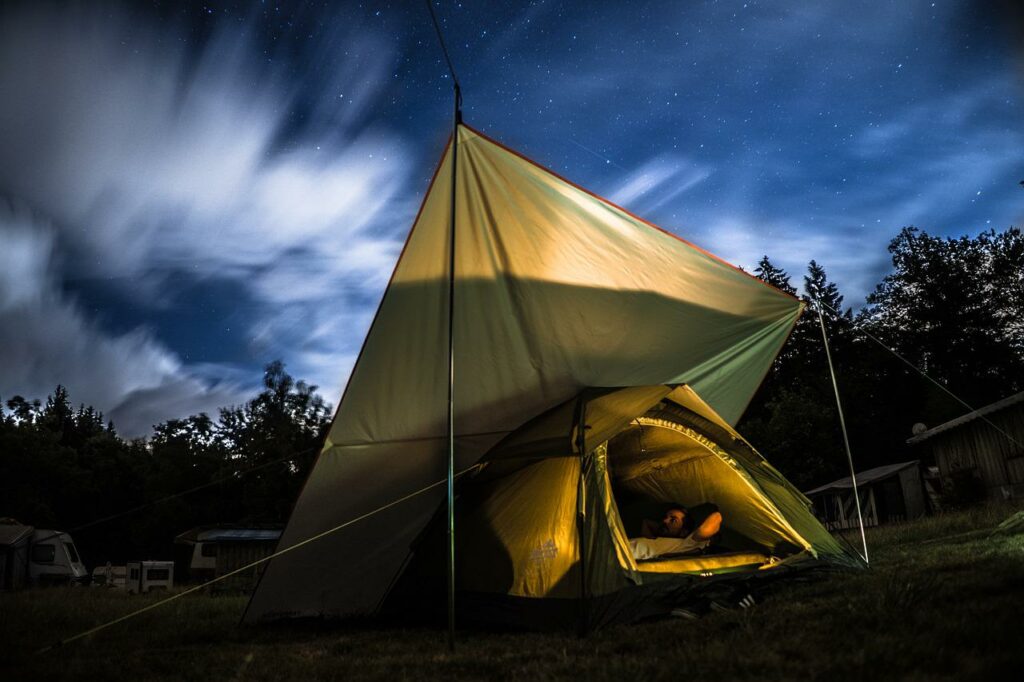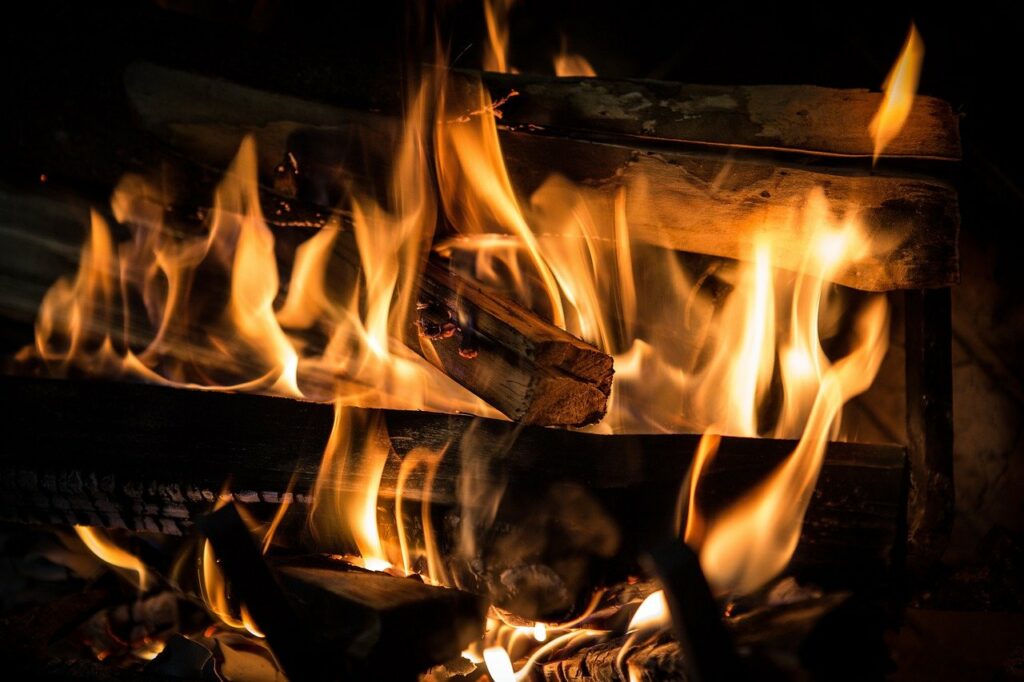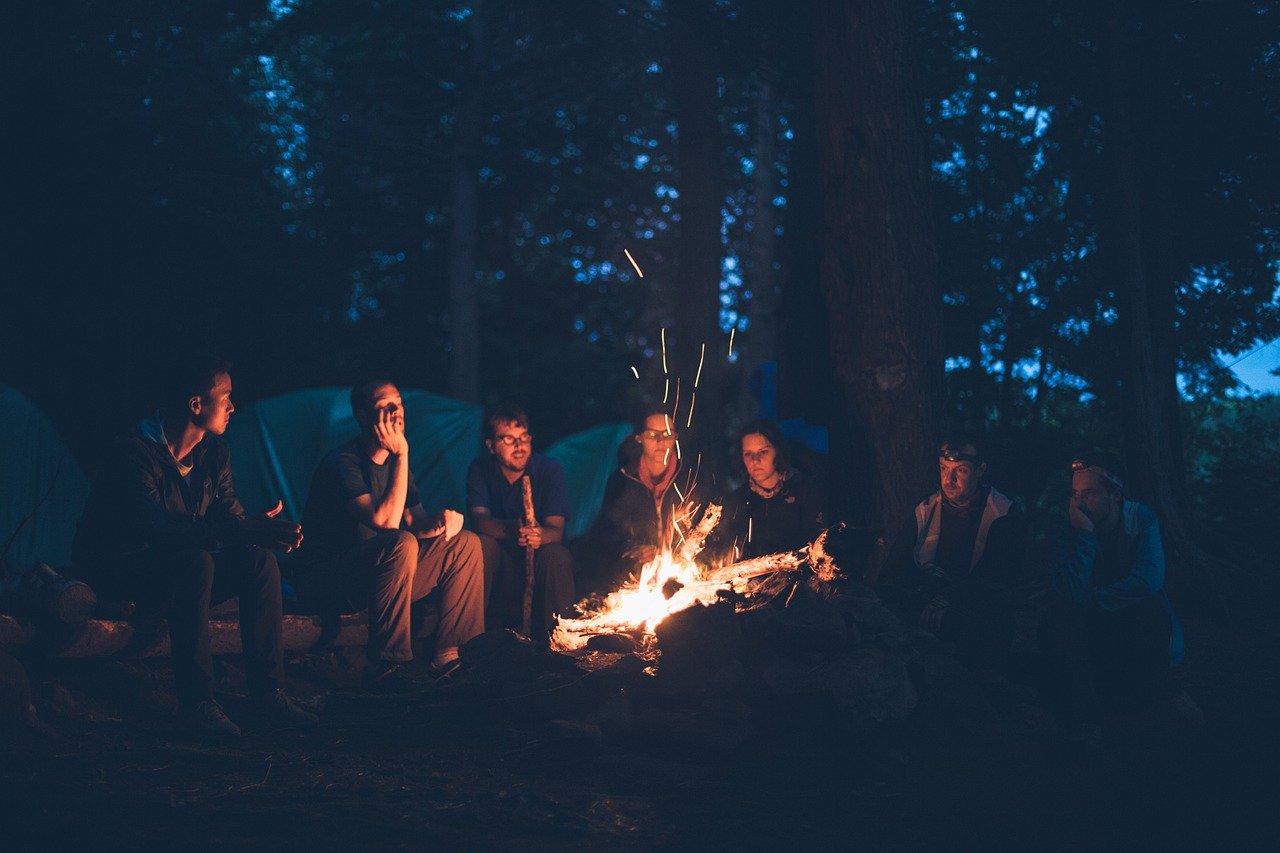Camping is one of the best ways to recharge your batteries and reconnect with nature. But flies can quickly ruin your camping adventure… Here are some ways to keep flies away while camping, and reasons why you really do not want to be bothered by these pesky insects.
Why you want to keep flies away while camping
- Flies have disease-causing microorganisms. Flies are scavengers. They are attracted to anything organic, including animal excrement, garbage, and rotting plant materials. Because of these habits, they tend to contain microorganisms that can give you diseases like E. coli infection, salmonellosis, and typhoid fever.
- They can attack your pets. Some fly species like buffalo flies, horse flies, and stable flies attack animals, including your pet dog if you plan to take it with you camping. Fly bites in dogs are no joke. They can lead to wounds and infections, which can then be infested by maggots.
- Their presence may mean there are other bugs in the area. If there are flies around your campsite, chances are, there are other dangerous critters there. The ones you should be most concerned about are mosquitoes. Mosquito-borne diseases are even more dangerous.

How to keep flies away while camping
1. Research about your campsite
Do your research first before camping. There may even be reviews out there regarding pests in the area. They may help you make preparations to keep these pests away. Try to know too if the area is cold or hot, as many pests like flies and mosquitoes thrive better in warmer conditions.
Sure, the warmer months of the year may be ideal for camping and enjoying nature compared to the colder months, but remember that these months are breeding and thriving time periods for many pests. Ants are such pests you should worry about as well.
2. Bring bug spray and repellents
The easiest way to keep flies away while camping is with bug sprays. Just read the instructions properly on how to apply them around your campsite. After all, they may contain toxic ingredients. You don’t want to apply them recklessly.
You can also buy repellents, such as candles, foggers, and traps, to make your campsite as inconvenient and unattractive as possible for these pests. There are also repellents you can apply to your skin. If you are worried about mosquitoes, try those with DEET.
3. Try natural repellents
If you don’t want to buy commercial products like bug sprays and fly traps, you can make natural repellents yourself with a few home ingredients. The secret is to use scents that flies hate, such as the smells of basil, cayenne pepper, cloves and lemons, lavender, and mint.
You can use essential oil versions of these ingredients and dilute them in water to make a spray. These ingredients are effective because even some commercial repellents have them. But take note that they will not get rid of flies. They will only repel them.
4. Keeping your campsite clean will keep flies away
Remember that flies are not picky eaters. They are also small creatures, with the average fly just clocking in at about 6 to 7 mm. Even the smallest food crumbs and tiniest water spills are enough to sustain them. If you have these around your campsite, you are sure to attract flies, not to mention other foragers in the area such as ants.
It’s also a good idea to have an eating area away from your tent. Let’s face it. It’s difficult to prevent food crumbs and water spills, especially when you are having fun with your family and friends camping. If you are to attract pests like flies, at least they are not near your resting area.
Still, do your best to not leave food crumbs, spills, and trash around. Mother nature will thank you for it as well.
5. Always cover your food
Flies don’t just go for scraps and leftovers. They may go directly for your cooked and uncooked food. Make sure to keep them covered. You can buy food covers – those metal domes you see in fancy restaurants. You can also keep your food in containers to make them completely inaccessible, but be careful in storing uncooked food for too long because it may spoil.
You should also be wary of flies while you are cooking outside. Your grill, for instance, has a lot of oil and other debris that may attract these pests.

6. Make your tent inaccessible
It may be difficult to keep flies away outside of your tent. But inside is a different story. It should be very simple to keep flies away inside your tent. Just keep it covered at all times, especially when you are outside anyway and don’t need any ventilation inside.
The inside of your tent should be one of the safest and most comfortable places on your campsite. Don’t let flies ruin it for you.
7. Keep flies away by setting up a campfire
Campfires produce smoke, and that’s something flies and other pests don’t like. Just make sure you are putting up campfires in areas that are away from bushes, trees, and other natural debris that may burn and become a bigger problem.
If the campsite doesn’t allow fires, you can also set up candles. And as mentioned earlier, there are candles out there that repel flies as well. Citronella candles are particularly useful because they have ingredients that flies naturally hate.
8. Use a fly swatter to keep flies away while camping
Flies are some of the most common pests on Earth. It doesn’t help that they live in close proximity to humans. But this doesn’t mean you should just let them buzz around and ruin your camping experience. Even a simple fly swatter is enough to get rid of flies in your camping area.
If you don’t have a fly swatter, you can also use other sturdy objects like rolled-up cardboard or newspaper.
You can keep flies away while camping
Don’t let flies ruin your outdoor adventure. Keep flies away while camping by using insecticides and repellents around your campsite. Make sure your campsite is always clean and your food is covered and inaccessible. But before anything else, make sure to research your campsite as well, so you can properly prepare for whatever kind of pests await you there.

